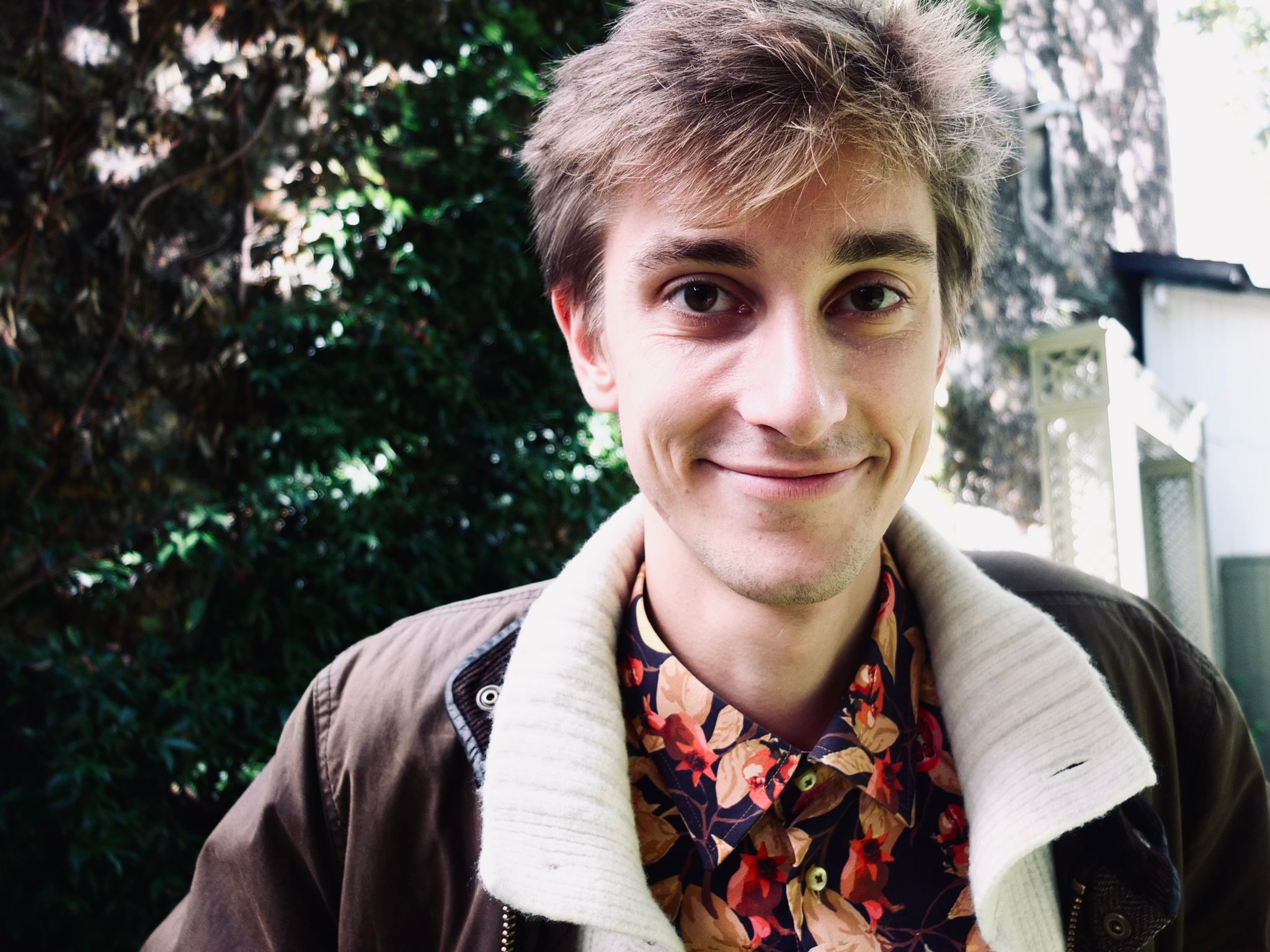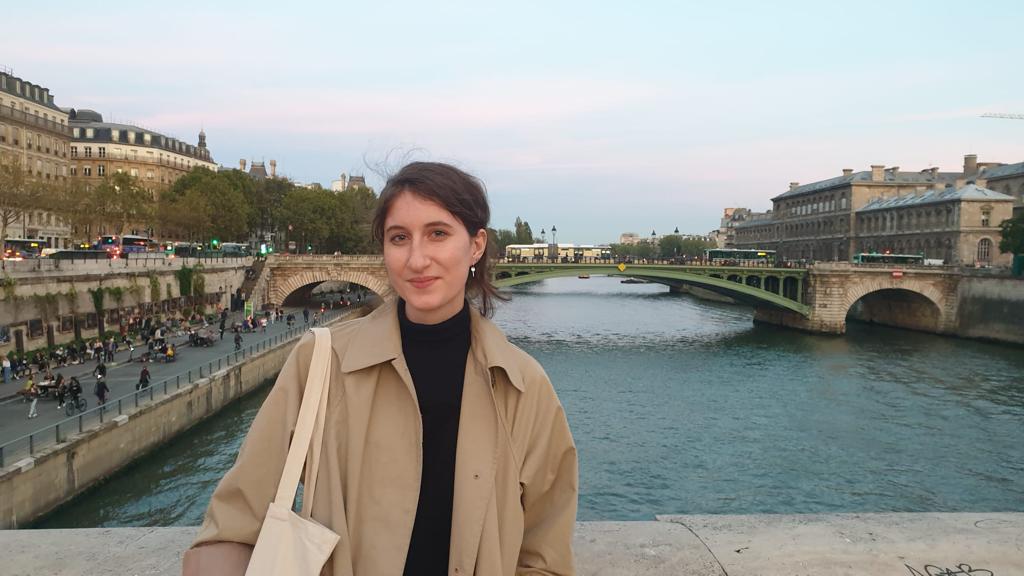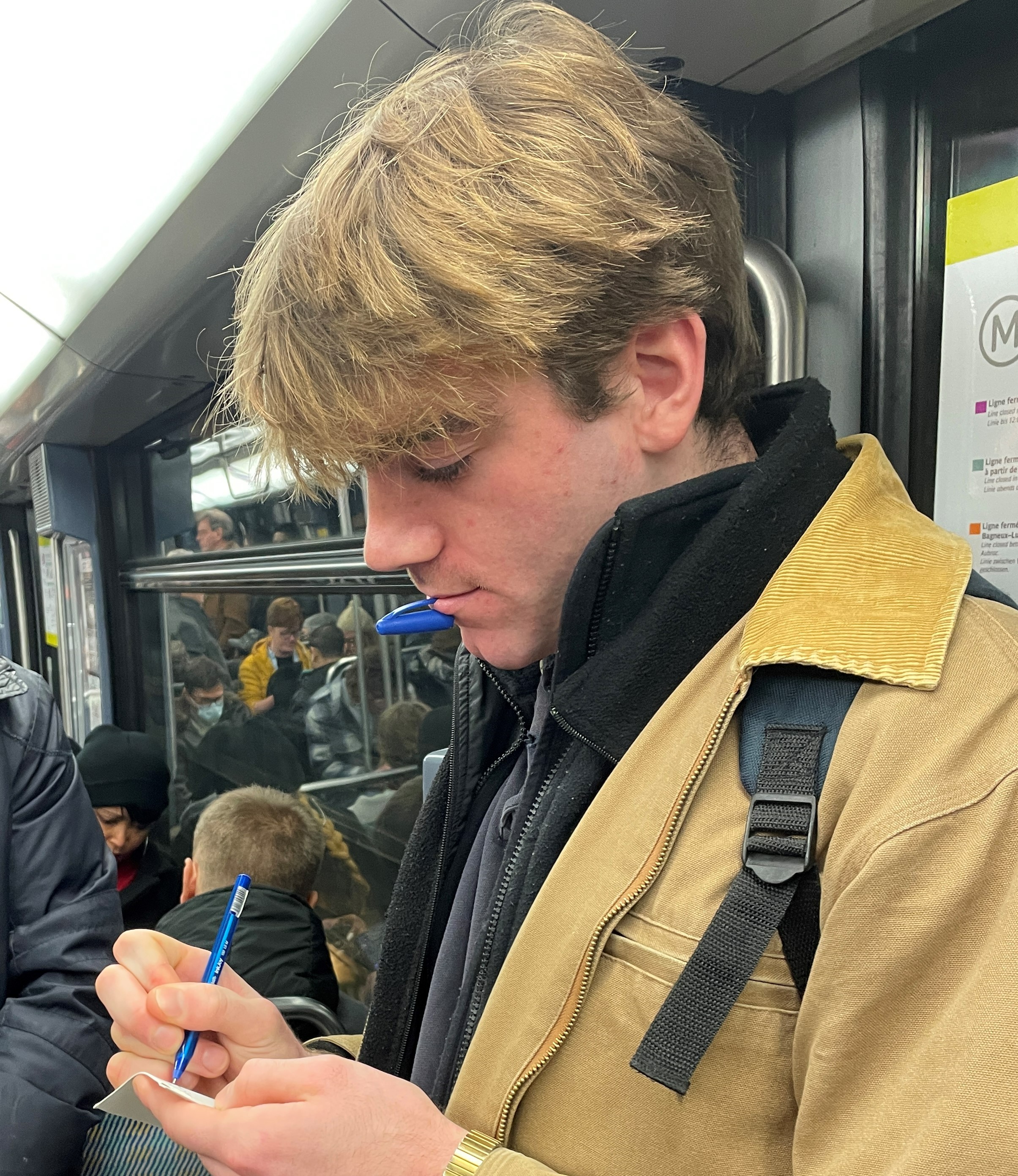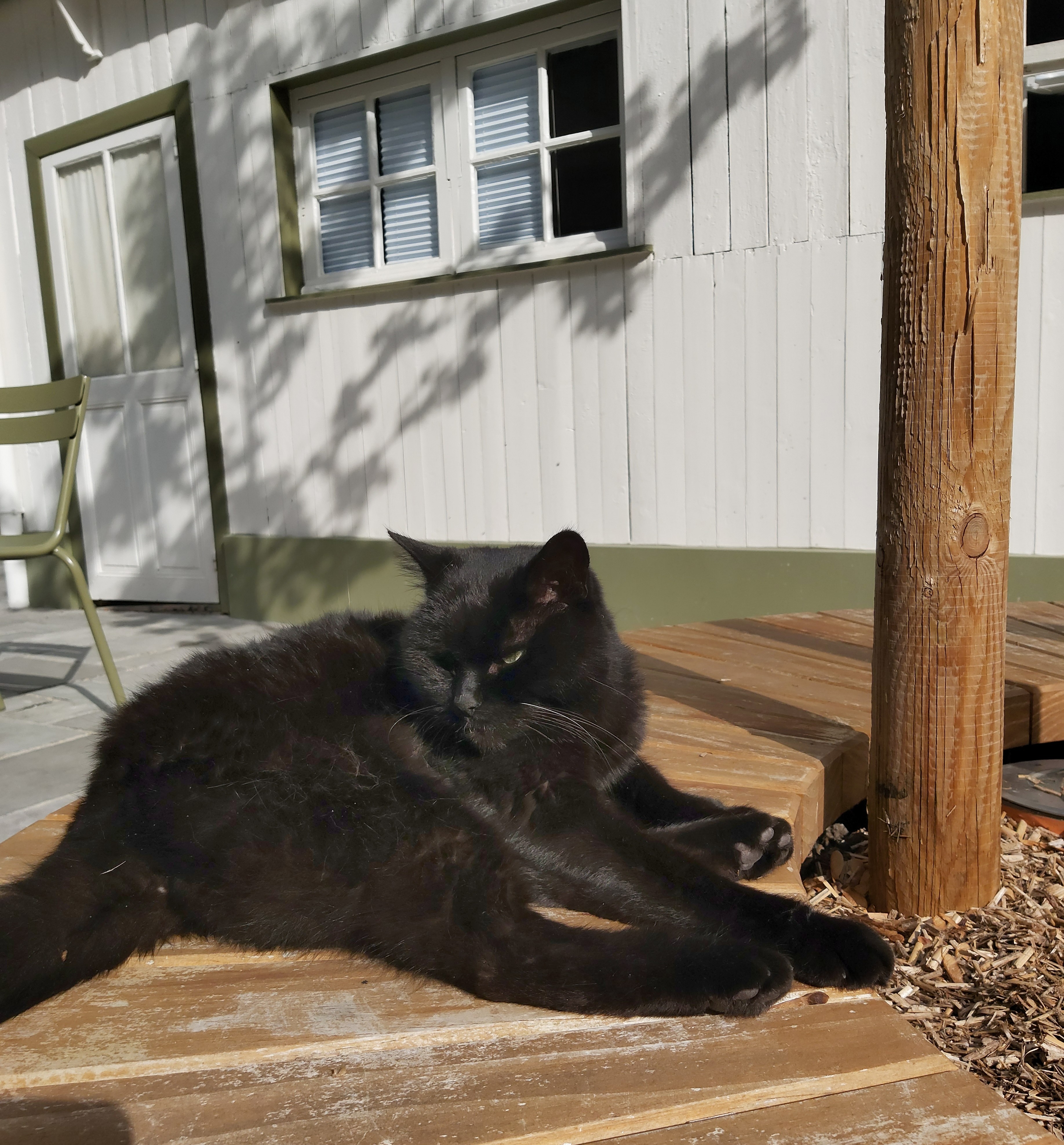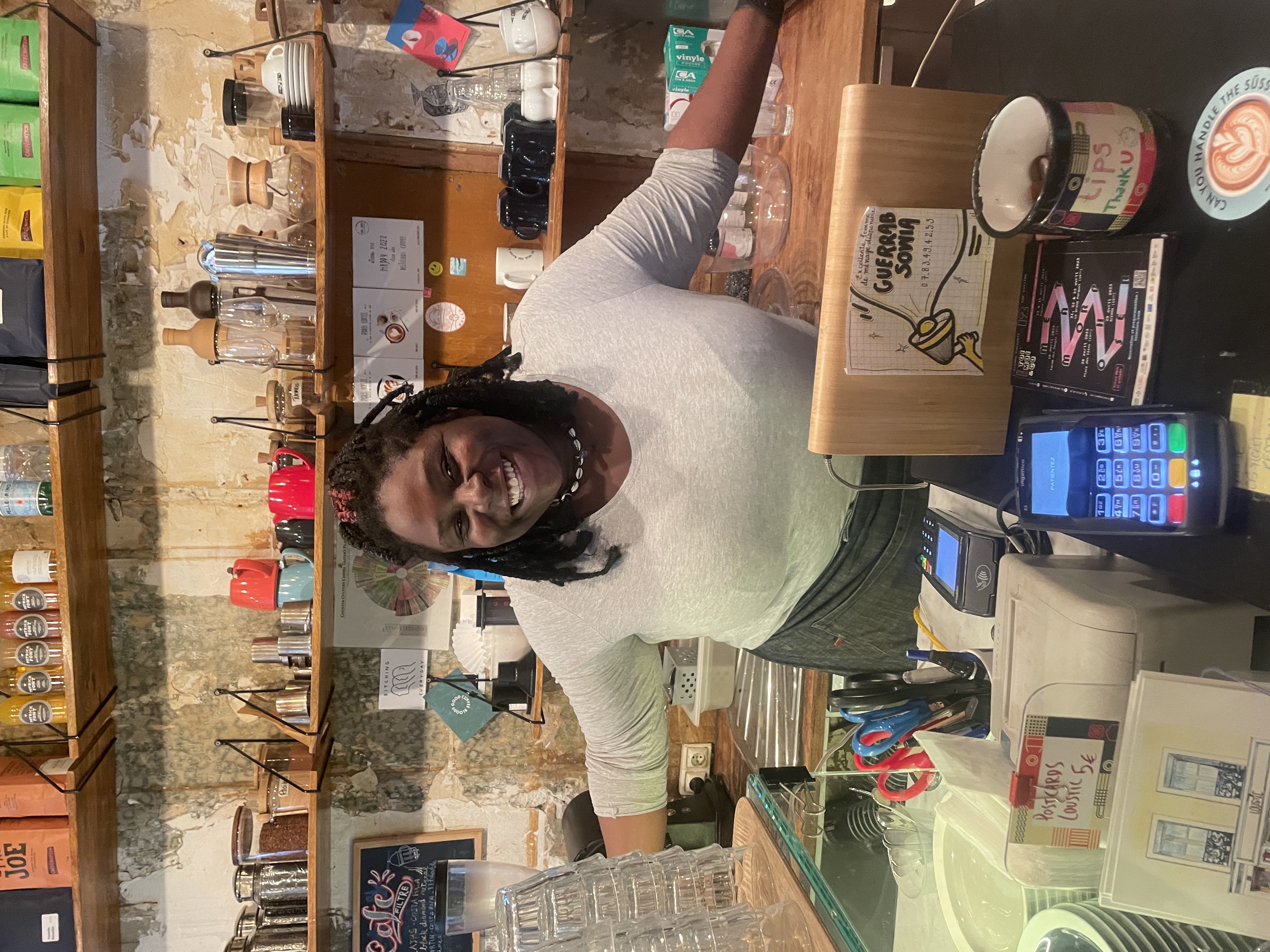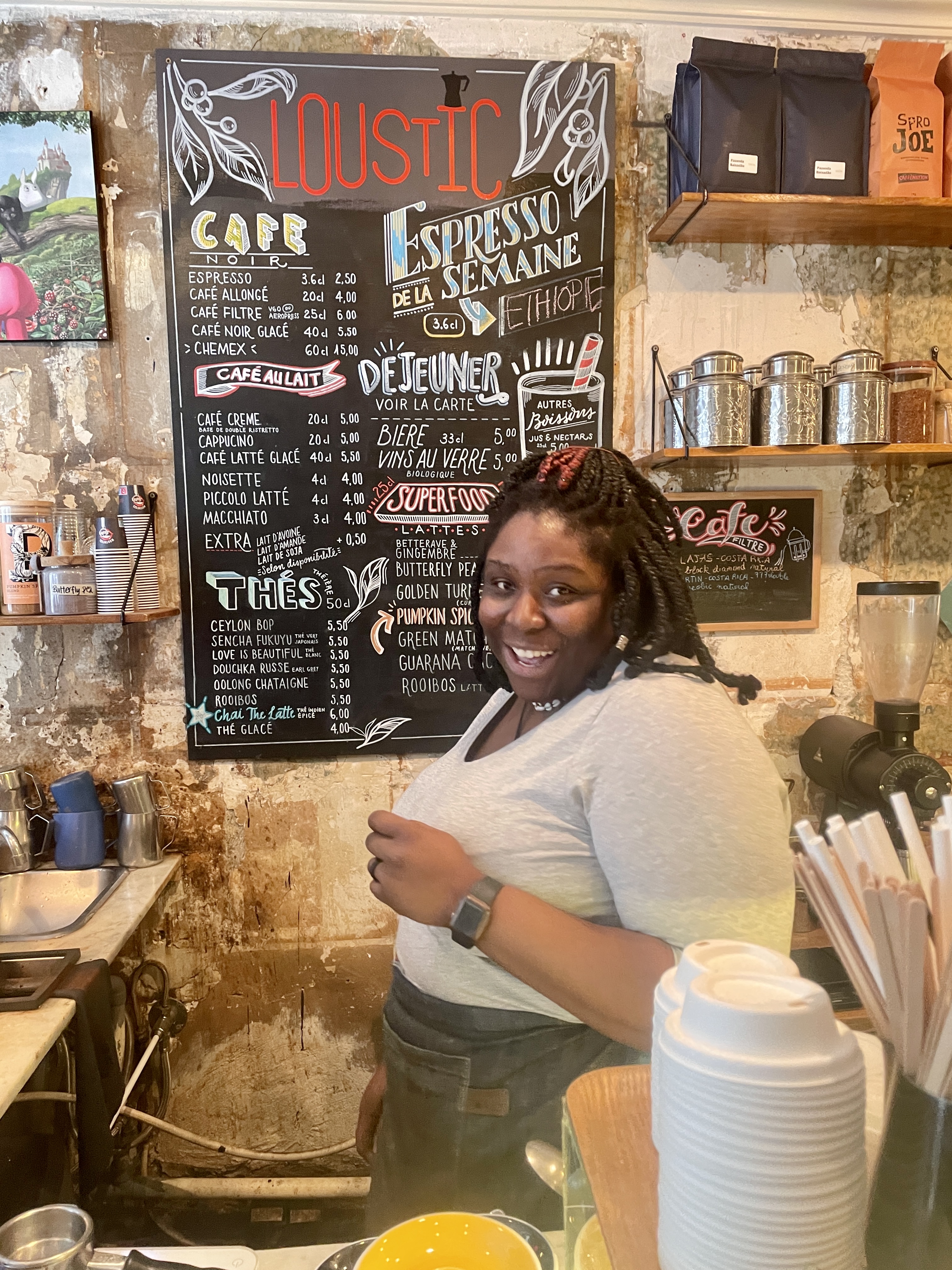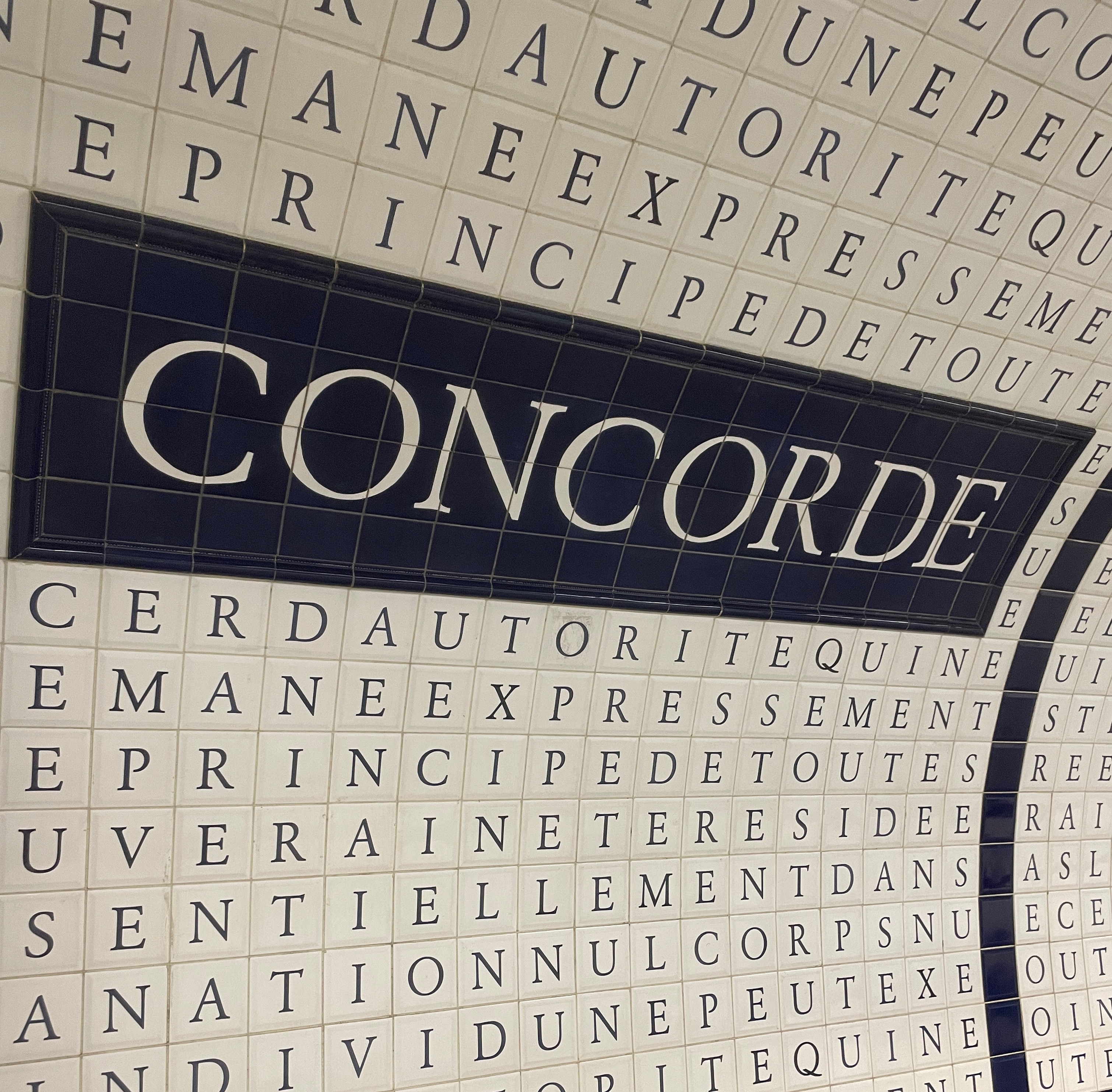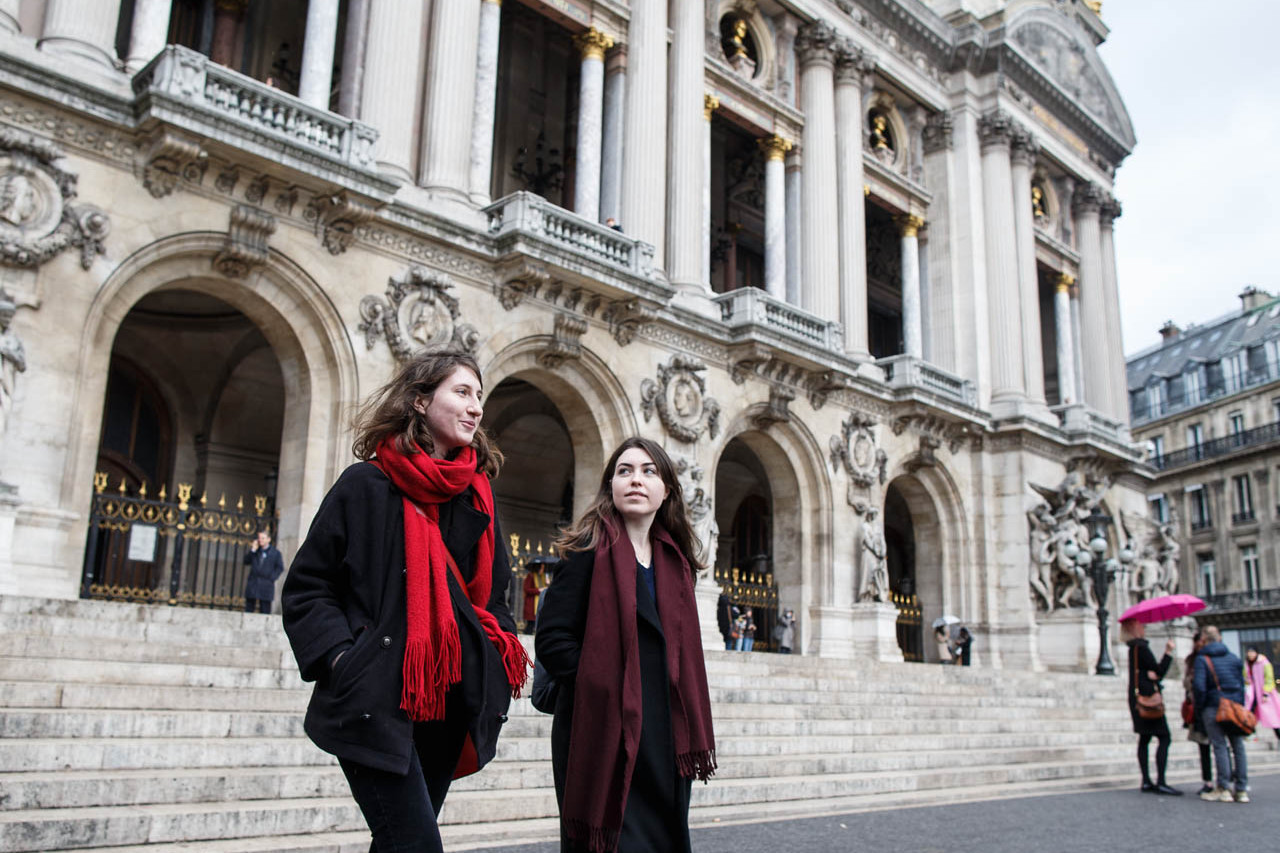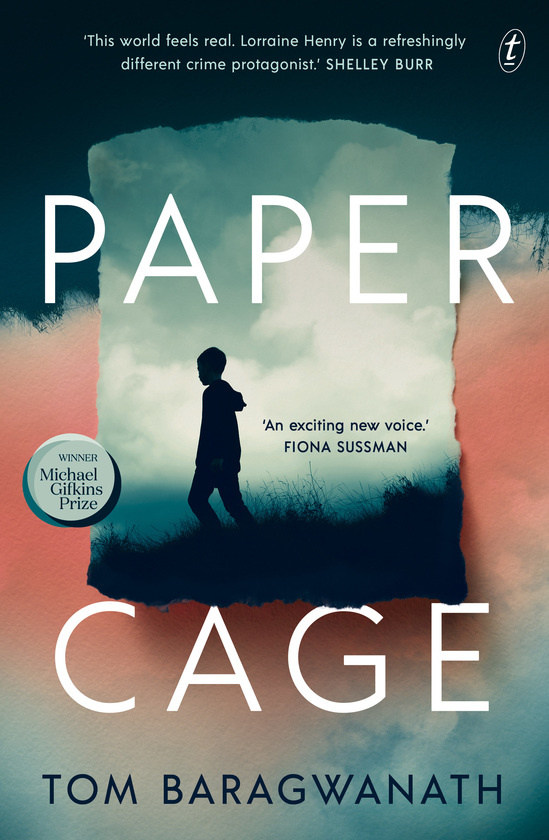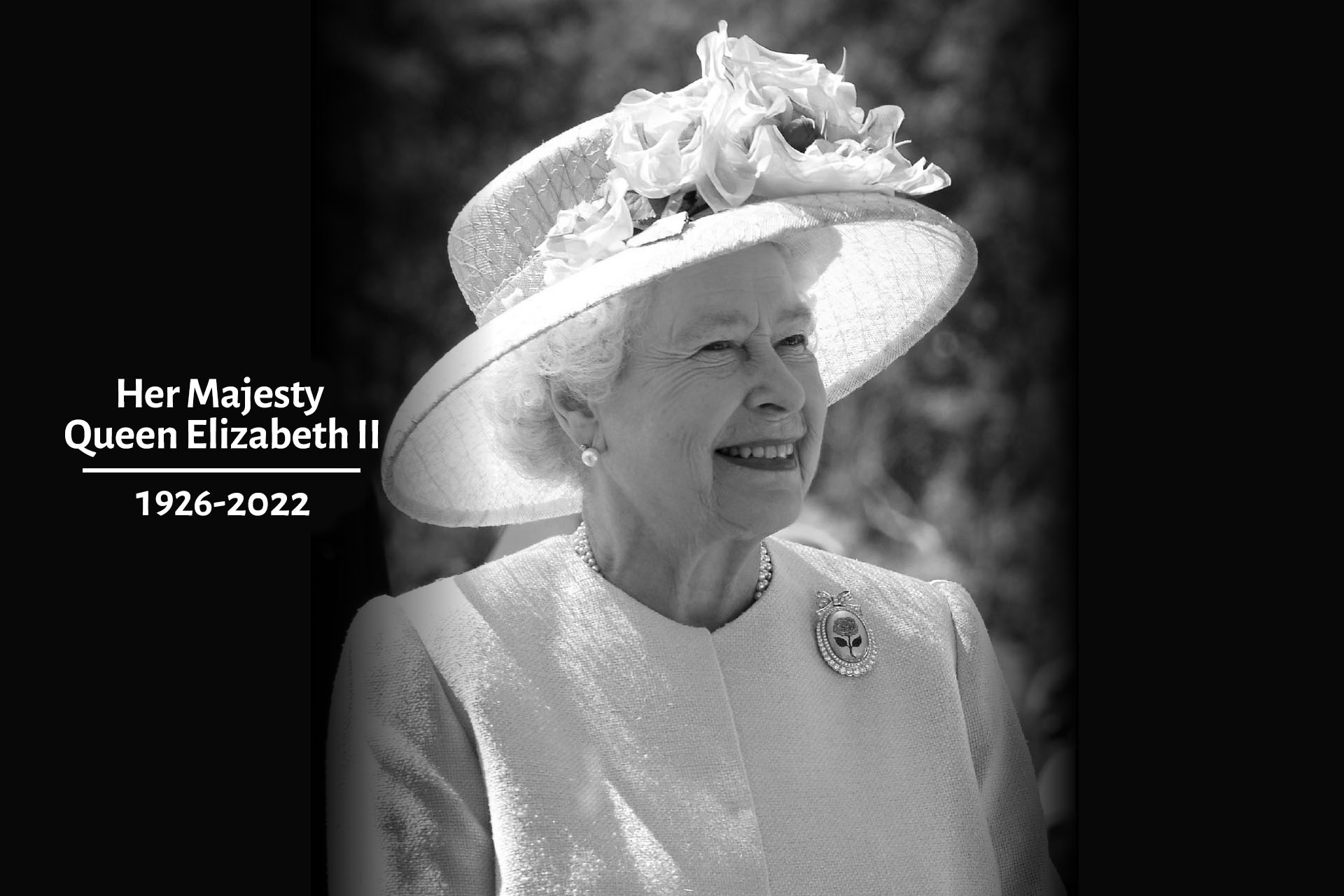What attracted you most about studying at the Paris School of Arts and Culture?
Thinking back to well over a year ago when I was sifting through master’s degrees online, my criteria were so specific that I had little hopes of fulfilling all of them…What I think settled it for me was the location; since taking the opportunity to visit Reid Hall last summer, I never looked back. Rarely had I looked forward to commuting to school/uni/work before, but knowing that classes are held in a picturesque old porcelain factory around the corner from the Jardin du Luxembourg definitely gets me excited enough to catch my metro in time (almost) every morning.
What is the relation (if any) between your undergraduate studies and your current MA programme?
Before coming to Paris, I got a BA in Philosophy & Economics. That might not necessarily be the most closely related field, but I always managed to incorporate my art-related interests into my research – so although I do not possess the broad art-historic knowledge of many of my classmates (yet), I get along just fine considering some subjects from a media-economic or epistemological perspective. My experience here has been that as long as you are passionate about a topic, you will be able to thoroughly explore it regardless of your prior education; beyond open discussions in seminars, the professors and Parisian institutions provide practically unlimited resources. I would say that interdisciplinarity is something that was especially enabled by both my under- and postgraduate studies: if philosophy and economics can be fruitfully related, the same goes for any two themes in this MA program (in my case, art history and film history).
What was your favourite module?
Now this is a tough choice. Both in Modern Art in Paris and Film and Modernity, we got treated to quite a few inspiring excursions (such as exhibitions at the Centre Pompidou, Musée d’Orsay, Petit Palais, Fondation Jérôme Seydoux-Pathé, Musée Albert Kahn), were assigned interesting readings and supported in our own research. For me personally, the film class takes the cake. Our professor happened to be on the jury of a Paris-based festival and invited us to come along, connecting us with filmmakers and curators, some of whom we even ended up collaborating with for a screening we organized as part of the annual Paris Postgraduate Festival! Not to forget, an honorable mention for the most entertaining class certainly goes to the weekly French lesson with Dr Carine Fréville.
At PSAC, we like to say that Paris is your campus. How genuine do you think this is?
In addition to the numerous excursion destinations mentioned above, there is a rich buffet of research institutions all over town. From the cozy living room atmosphere of the American Library in Paris, to the breathtaking eclecticism of the Bibliothèque Nationale de France at Richelieu, to the dystopian depths of its François Mitterrand site (no doubt the best place to get a grip and focus when deadlines are approaching), PSAC hands out library memberships like candy – and I was there for it. Also, fortunately for me, sitting in a booth in front of a boxy monitor from the 1990s to watch obscure films from the 1930s matches my idea of a fun morning, and so I have become a regular visitor at the Cinémathèque française. And finally, there is nothing wrong with snuggling up at Reid Hall or strolling over to the lavish nearby park to do a week’s worth of mandatory reading on a single sunny afternoon.
You started your studies in January. Do you feel it was easy enough to meet other students and form bonds?
Concerts, screenings and magazine launches are just some of many opportunities to connect with peers on and off campus throughout the year, yet I felt and still feel no pressure to socialize; as with most things, the key is to not overthink anything, be open to new experiences and let it all happen naturally.
What has been your most memorable Paris moment?
A few come to mind, but here’s one that is perhaps most representative of how I hope to remember this chapter in my life (as much as it is a total cliché): Sitting down on a picnic blanket in Buttes-Chaumont after having played Boules for two hours straight, surrounded by most of my friends, cheese, pastry, wine, grapes, and watching the sun set over the city.
You’re from Germany. What as the transition from Germany to Paris like?
Having already lived in France for a few months after high school, and being from a neighboring EU country, I had the privilege of neither having to deal with a lot of paperwork beforehand nor being surprised by cultural differences. That’s right, you’re supposed to remain quiet during a movie! Unless it’s a silent film of course, in which case one is legally obliged to whistle along to the music. (Bad) Jokes aside, I had the rare foresight to look for – and the good fortune to find – accommodation a few months in advance; now that I’ve properly settled in, Paris feels like a home that I can always come back to. Disclaimer for fellow (former) medium-sized-town dwellers: It did take me a while to make peace with the fact that I will necessarily miss out on most of the exciting cultural happenings on account of their sheer ubiquity.
What advice would you give to incoming students?
To follow up my previous statement: Relax and discover everything at your own pace. At the same time, embrace that this is a great time to meet people and explore whatever interests you – or, if you’re unsure, to find out what that really is. Be willing to learn some French! You can get the basics down with any school book or online tutorial, aided by the weekly free lesson on campus. Then gather all your courage and start getting through your everyday life – and ideally, beyond – in the local language as best as you can, even when you’re being replied to in English (which happens a lot in the beginning). Eat and drink well, go for walks and hop on a rental bike from time to time to get a feeling for the city outside of your commuting routine. Lastly, there is not much left to say concerning the course apart from the obvious (choose modules that you’re curious about, not just by subject but content!). One bit of practical advice I think, speaking from personal experience, would be to use some extra time to do research throughout the term, so as not to be in a rush once the essay deadlines are around the corner. Time flies in Paris!
Valentin in the courtyard garden at Reid Hall, University of Kent Paris School.
